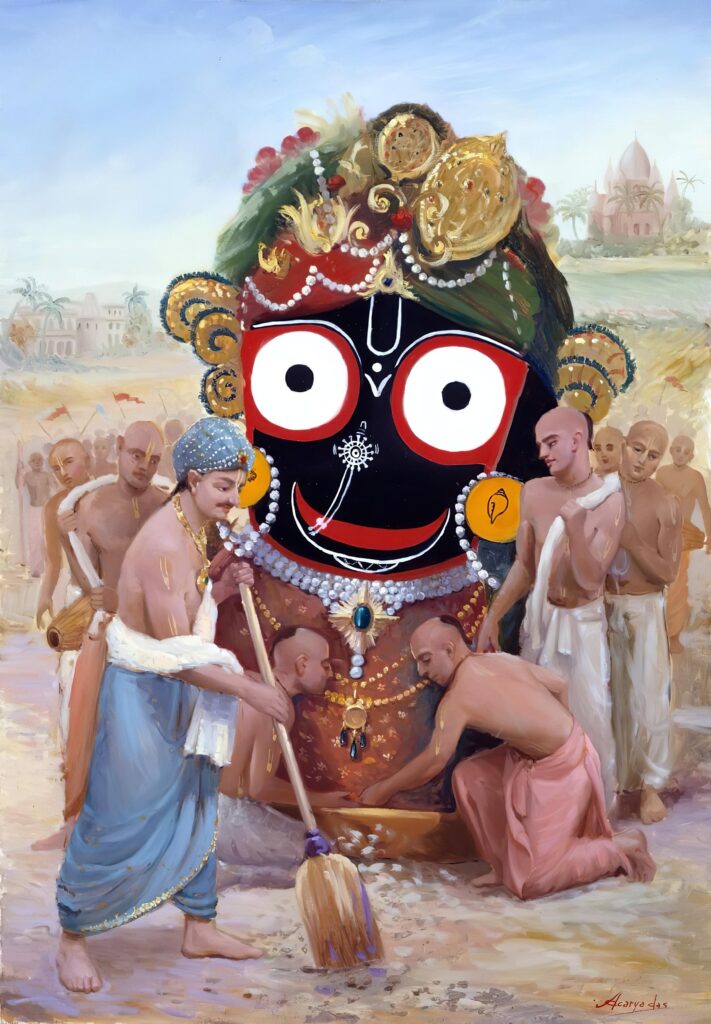It’s said that devotees on the Uttama platform see everyone as a servant of Krsna, and thus they consider everyone as superior to themselves. This may sound difficult to understand since most people are not really serving Krsna at the present moment, but this is due to the material covering of the pure soul. In our current state, when we look at a person we don’t see the soul at all, we just see the material covering, but for an Uttama devotee it’s the opposite: he sees the soul instead of the temporary nature.

For us, it may be very difficult to understand how this works, but the nature of the soul transcends space and time. Although now conditioned, the soul is an eternal servant of Krsna, and it is this eternal nature that an Uttama devotee can see. Currently, this eternal nature exists simultaneously with a temporary, material nature, but a devotee who is exclusively concentrated on the transcendental platform doesn’t notice it. Instead, he sees the transcendental reality.
This point of a spiritual and a material identity existing simultaneously is something that can be very relevant when we speak about relationships with other devotees, which are frequently stranded by human imperfections such as anger, envy, negligence, or even dishonesty.
Srila Prabhupada makes the point that everything we do in terms of service to Krsna is eternal because it’s connected with the eternal spiritual platform. On the other hand, the material activities we do, be it good or bad are connected with the temporary material identity and are thus, temporary.
This means that whatever service we do, especially in terms of helping people become Krsna Consciousness is eternal, while the sinful activities we do are temporary, being connected with the material world. This doesn’t mean we will not have to pay for the harm we do, but the negative effects will be always temporary, and thus less important than the eternal effects of devotional service.
This is something to take into consideration when we a dealing with the imperfections of other devotees (and ultimately of people in general). There is an eternal nature, on which they serve Krsna, and there is a separate temporary nature where they act materially and commit different sins. Just like two separate persons, we may sometimes deal with one and sometimes with the other. While this demands us to often be careful, it can allow us to appreciate whatever good they do, despite the imperfections they may show, and thus “have the sin, but not the sinner”, understanding that the contaminations will be eventually washed away, be later in this life or the next, but the devotional service they perform is eternal.
This understanding is also instrumental to understanding different historical personalities, who at the same time did great service but committed great harm. When we can understand this dual nature, we can see how both things can come together, without necessarily contradicting each other.
